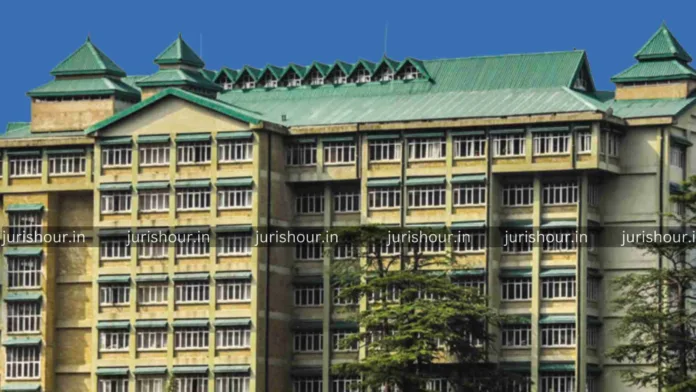The Himachal Pradesh High Court in the fake Input Tax Credit (ITC) availment case, held that the investigation shall not be vitiated simply because the informant is the investigator.
The bench of Justice Rakesh Kainthla observed that the Supreme Court’s decision in the Mukesh Singh’s case in which it was held that the investigation is not vitiated simply because the informant is the investigator. The question of bias or prejudice would depend upon the facts and circumstances of the case. Hence, the complaint is not liable to be quashed because the investigation was made by the officials of the department.
The bench stated that when the officials went to the addresses mentioned in the invoices and found that no such entity existed, it was sufficient to infer that the invoices were fake, and the material shown to have been supplied as per the invoices could not have been supplied since no such person existed at the given address. The Court has to see a prima facie case while exercising inherent power and does not shift the evidence to determine its creditworthiness or value. This is for the Trial Court to see where the matter is pending; hence, the complaint cannot be quashed simply because the investigation was not made with the GST authorities at Delhi.
The complainant filed a complaint against the petitioners/accused for the commission of offences punishable under Section 69 read with Section 132 of HPGST/CGST Act, 2017, read with Section 20 of the IGST Act, 2017. It was asserted that M/s G.M. PowerTech is a registered taxable person consisting of a partnership firm of Gagan Deep Singh and Jatinder Mohan (the present petitioners/accused).
Information was received from reliable sources that the petitioners indulged in large-scale evasion of tax by availing the fraudulent input tax credit during the years 2017-18 and 2018-19. They declared inward supplies (purchases) from Delhi and U.P.-based floating fictitious and non-existent firms, which were registered to pass on the fraudulent benefit of input tax credit on the strength of fake invoices. The matter was examined on the GST Portal, and it was verified that several consignments were delivered in two-wheelers, three-wheelers or cars.
The registration numbers of many vehicles declared to have transported the goods from outside the State were found to be fake. The consignments were also transported in cars, but it was not possible to transport such heavy goods in cars. Goods worth Rs. 2,89,26,299/- were declared to have been transported by a fake or non-existent vehicles. Input tax credit (ITC) of Rs. 61,69,147/- was claimed.
The search warrant was issued to ASTEO-Rupinder Singh, and the business premises of the taxpayer were searched. Inquiry under Section 70 of the Act was initiated on 05.11.2018. The summons were issued to the suppliers M/s Om Metals, M/s Ridhi Alloys and M/s SD Enterprises; however, these were returned with the report of an unknown address. A team led by ASTEO-Rupinder Singh was deputed to physically verify the suppliers. ASTEO visited the premises and found that no such entities existed at the given address.
They were asked to make inquiries about the residential address, but the addresses were found to be fake. G.M. Powertech claimed input tax credit fraudulently worth ₹ 9,21,30,291/- in respect of a non-existent supplier namely M/s SD Enterprises, M/s OM Metals and M/s Ridhi Alloys. Hence, a complaint was filed before the Court for taking action as per the law.
Being aggrieved from the filing of the complaint and the proceedings pending before the learned Trial Court, the petitioners have filed the present petition asserting that the provisions of HPGST/CGST and IGST Acts are silent regarding the arrest, investigation and filing of the complaint. HPGST Act has made the provisions of search and seizure provided under Cr.P.C. applicable to the HPGST Act. The Officers under the Act have been given unbridled powers. The provisions of Sections 69 and 132 are arbitrary and unreasonable. It is violative of Article 21 of the Constitution of India.
The court held that Section 132 provides for imprisonment, which may extend to five years or a fine. Section 2(X) of the Cr.P.C. defines a warrant case as a case relating to an offence punishable with imprisonment for a term exceeding two years. Since imprisonment provided is five years, which is more than two years, therefore, the case was to be tried as a warrant case, and there is no error in trying the case as a warrant case.
The court dismissed the writ petition.
Case Details
Case Title: Gagandeep Singh and another Versus State of H.P. and another.
Case No.: Cr. MMO No. 338 of 2024
Date: 23/06/2025
Counsel For Petitioner: Dinesh Singh Rawat and Anil Chauhan
Counsel For Respondent: Prashant Sen, Deputy Advocate General

